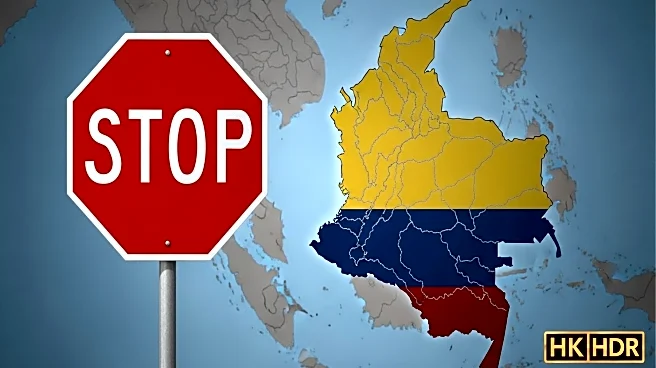What's Happening?
The United States has decertified Colombia as a drug control partner for the first time since 1997, citing a significant increase in cocaine production. President Trump criticized Colombian President Gustavo Petro for failing to meet drug control obligations, although sanctions were not imposed. The decision reflects growing tensions between the U.S. and Colombia, a key ally in the region. Despite the decertification, the U.S. continues to provide aid and security cooperation to Colombia, highlighting the complex relationship between the two countries.
Why It's Important?
Colombia is the world's largest cocaine producer, and its decertification could impact U.S. interests in the region. The decision may strain diplomatic relations and affect ongoing security cooperation. The increase in cocaine production poses challenges for both countries in addressing drug trafficking and related violence. The U.S. has historically provided significant aid to Colombia, and any changes in this support could have far-reaching implications for regional stability and counter-narcotics efforts.
What's Next?
Colombian officials are likely to continue lobbying U.S. lawmakers to maintain military aid and support. The decertification may prompt Colombia to reassess its drug control strategies and seek alternative approaches to address the surge in cocaine production. The U.S. may also explore new strategies to strengthen its partnership with Colombia while addressing the challenges posed by increased drug trafficking.
Beyond the Headlines
The decertification raises questions about the effectiveness of current drug control policies and the need for a comprehensive approach that addresses both supply and demand. It also highlights the geopolitical dynamics in the region and the importance of maintaining strong alliances to combat transnational crime.










